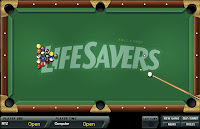 I seem to live so many areas of my life according to a strict pattern. I get up at the same time every day, I go through my usual morning routine and arrive at work at the same time, packing my usual lunch and my usual thermos of coffee. I even tend to park in the same space. Sometimes routines and patterns are not a bad thing. Sometimes putting parts of our life into cruise control, allows our minds and creativity to be free to focus on other things. And yet ...
I seem to live so many areas of my life according to a strict pattern. I get up at the same time every day, I go through my usual morning routine and arrive at work at the same time, packing my usual lunch and my usual thermos of coffee. I even tend to park in the same space. Sometimes routines and patterns are not a bad thing. Sometimes putting parts of our life into cruise control, allows our minds and creativity to be free to focus on other things. And yet ...Too often I seem to live my life making the same pattern of mistakes over and over again. I focus too much on myself. I am far too timid when it comes to trying to make friends. I battle with the same sins day after day and night after night. It is the same routine. The same song. The same dead end road. I know that this is not who I want to be or where I want to be. Albert Einstein once said that insanity is doing the same thing over and over again and expecting different results. Perhaps that marks me as insane. However, I have been stuck on the same road for so long I think that I have slowly lost my heart for trying to find my way out. I have given into the strange comforts of despair and loneliness and predictability. And yet ...
I still have the faintest of memories locked away in my heart of happier seasons, where my life echoed with laughter, with shared intimacy, with looks from eyes that took my breath away. I so desperately long for relationships like that. Yet today I find myself in a place where I don't want to be, looking in the mirror at someone who is not who I want to be. Poet T.S. Eliot wrote:
"In order to arrive at what you are not
You must go through the way in which you are not"
Perhaps my time on this road is serving some necessary purpose that I will only appreciate after I have passed in through the out door.






















